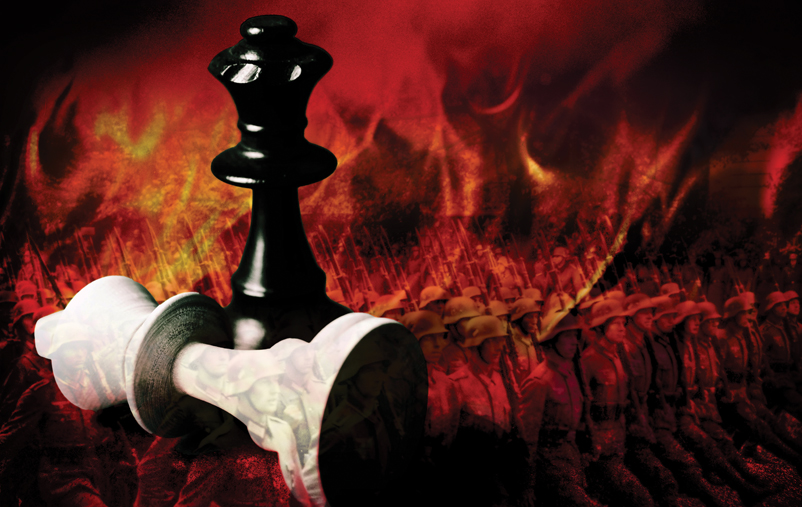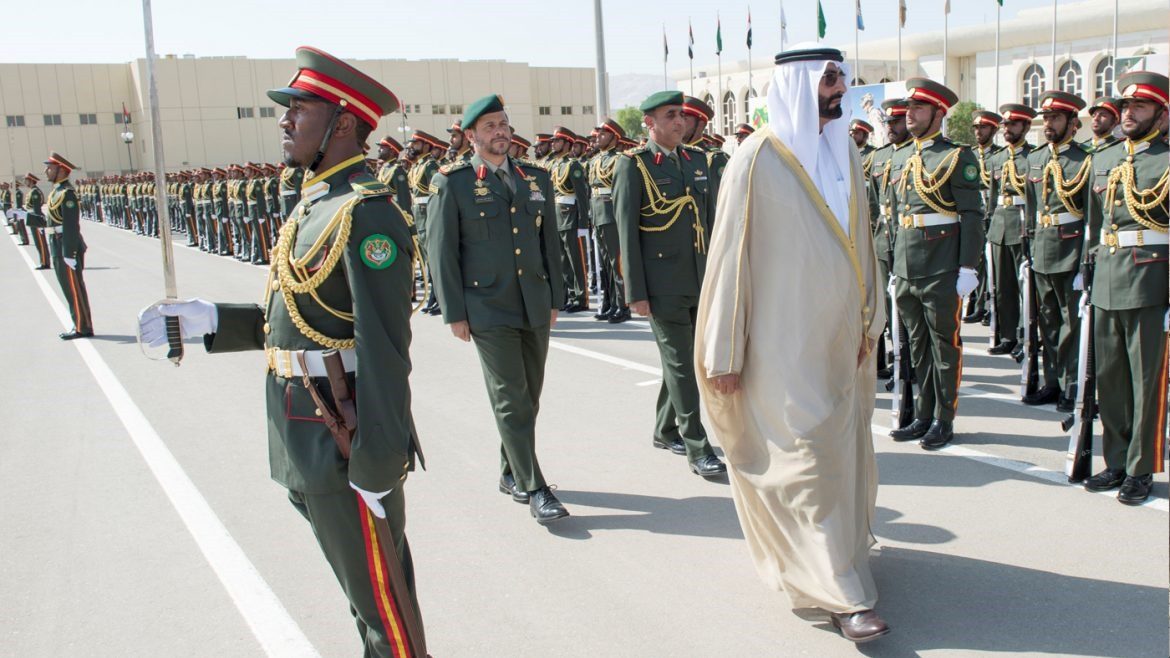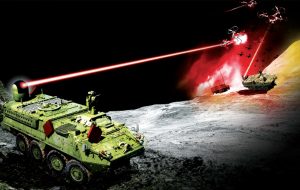Political and military analysts differ in their assessment of the role that surprise plays in war. While the Chinese military perspective, represented by Sun Tzu, emphasises the significance of the element of surprise for winning wars, considering it one of the main components of victory, Carl von Clausewitz, the Prussian military thinker, is the only one who contradicts this trend, downplaying the value of surprise as a fundamental criterion for success in wars.
In reality, political and military leaders in the United States were surprised by their inability to turn military victory into positive political and strategic outcomes multiple times.
From a military standpoint, the advantages gained from achieving strategic surprise are invaluable. A successful unexpected attack makes it easier to destroy a significant portion of the enemy’s forces at a lower cost to the attacker by disrupting the military balance of the defender, thus temporarily diminishing their resistance capability. In more general terms, the numerically inferior side can take the initiative by concentrating its superior military strength in the time and place of its choosing, significantly improving the likelihood of achieving a decisive victory.
Strategic surprise, often referred to as a (surprise attac), occurs when a conflict happens at an unexpected time or place. Surprise can occur at all levels of war, including strategic, operational, and tactical. This study seeks to clarify the types of strategic surprises, the reasons for their occurrence, and how countries can avoid them.
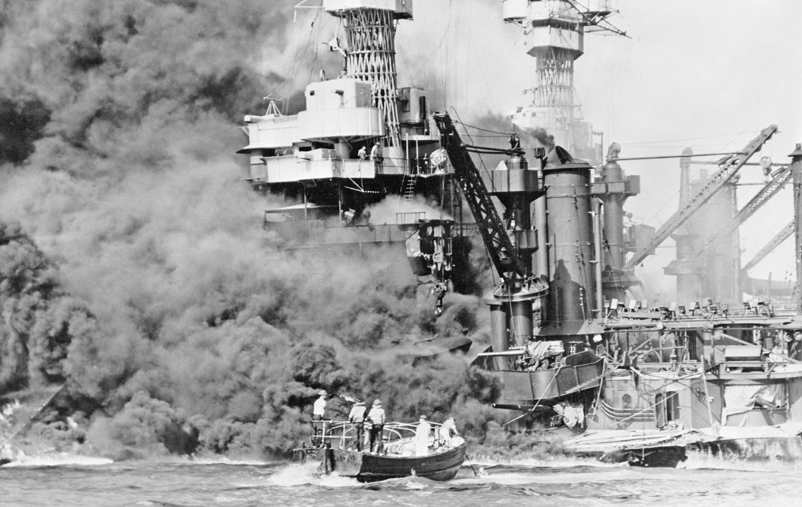
Types of Strategic Surprise:
The goal of a strategic attack is to inflict a major defeat on the opponent, altering the military situation and significantly determining the outcome of the conflict. Naturally, the opponent seeks to conceal their movements and use deception.
However, this definition precludes the use of nuclear weapons or the involvement of a major power from the strategic dimension: but rather relates to the goal and context of the attack.
Moreover, the Four types of strategic attacks can be categorised as follows:
Sudden Military Attack: This refers to a state launching an unexpected attack against another state, such as the Japanese surprise attack on the Russian fleet in Port Arthur in 1904 or the Japanese attack on Pearl Harbor during World War II. In the latter, the surprise was the location, not the timing, as the United States knew at the time that a battle with Japan was imminent.
One reason for the U.S. failure to anticipate the attack was that the American military dismissed the possibility of Tokyo launching an attack on a distant port, such as Pearl Harbor, due to their belief that the Japanese did not have the necessary military capabilities to achieve it. Another famous surprise attack was made by Al-Qaeda on the World Trade Center buildings in Washington, along with the Pentagon, using three civilian planes on September 11, 2001.
Opening a New Operational Theatre: This refers to unexpectedly opening a new front in a broader military conflict, such as the German invasion of Norway in 1940. Also within this context, the Communist forces from North Vietnam and the Viet Cong launched an attack on January 30, 1968, known as the (Tet Offensive), against South Vietnam and its American allies. This attack was one of the largest military operations in the Vietnam War and became a major turning point in the conflict.
The Tet Offensive consisted of a series of surprise attacks launched during the Tet festival, the Vietnamese New Year. Many South Vietnamese forces were on leave when the attacks began, catching the South Vietnamese Army off guard.
The campaign initially targeted over 100 cities and towns, including the strategic southern capital, Saigon, now known as Ho Chi Minh City.
Approximately 50,000 Communist soldiers were killed in an attempt to control the southern part of the country. The overall losses for South Vietnamese and American forces were limited compared to the losses of North Vietnamese forces.
Despite the military setback, the Tet Offensive succeeded in shifting the tide of the war in favour of North Vietnam, when Viet Cong forces infiltrated rural areas controlled by the South Vietnamese government, ultimately contributing to North Vietnam’s victory over the South.
Using New Tactics: This refers to the adoption of a new pattern of warfare that was not prevalent before, such as the United States bombing Japan with nuclear bombs during World War II.
Throughout military history, some armies surprised their enemies on the battlefield by adopting new tactics, bold strategies, or employing a high degree of strict military discipline.
Examples of these new tactics include Napoleon’s wars to control European countries, where he introduced institutional changes that allowed him to manage a massive army, achieving significant victories over his opponents and occupying major European cities.
Similarly, the Blitzkrieg tactics employed by the Germans at the beginning of World War II represent another example of new tactics.
Another example is the success of Japanese torpedo planes in sinking the battleship HMS Prince of Wales and the HMS Repulse battle cruiser a few days after the attack on Pearl Harbor.
Such military surprises were achieved by successfully combining tactics and technology. Senior British naval officers failed to recognize the possibility of major warships being threatened by air attacks, including the task force commander, Admiral Tom Phillips.
These ships operated from Singapore without air support, and the Japanese managed to locate Phillips’ force and launched an attack using torpedo bombers, resulting in the loss of both ships and 840 sailors in an operation later described as marking (the end of the era of battleships).
The subsequent surprise and shock were profound for crews, military personnel, and political leaders outside the direct battle.
Sudden Natural Disasters: Unexpected environmental events can generate strategic surprises, such as natural disasters like earthquakes, volcanoes, and tsunamis, which may develop unexpectedly, causing devastating losses, as seen in the tsunami disaster that hit the Japanese Fukushima nuclear reactor in March 2011.
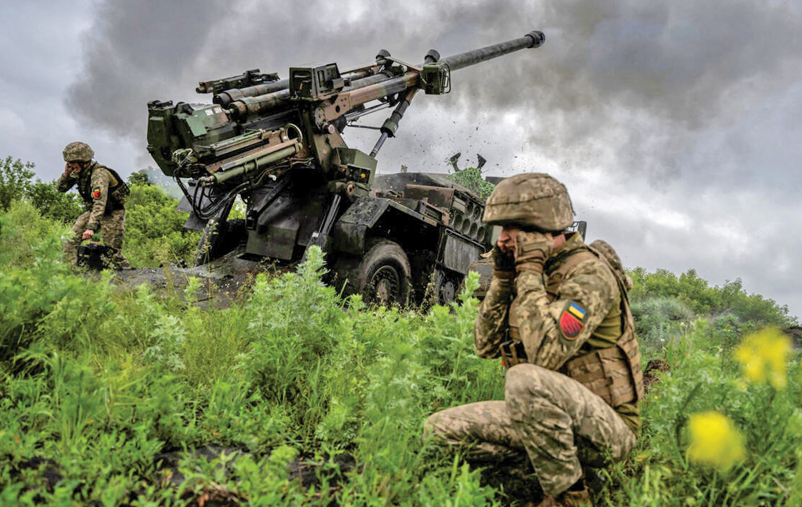
Reasons for Surprise Attacks:
Upon reviewing the insights of military experts and strategists, who base their assessments on past war experiences, the reasons for the occurrence of a surprise attack were as follows:
Deception: Deceiving the enemy is the primary reason for strategic surprises. One cannot overlook the perspective of the Chinese military leader, Sun Tzu, who stated that (all wars are based on deception).
Moreover, the concept of the (Fog of War), which describes the uncertainty inherent in warfare, reflects the inability of warring parties to be certain about their capabilities when transitioning from planning to execution.
In this regard, the German Marshal Moltke famously remarked, (No plan of operations survives the first encounter with the main hostile force).
Additionally, there are two main types of military deception: the (feint attack) which involves executing a completely fake attack or simulating preparations for an imminent assault and the (military pretence), which involves real movement of forces, aiming to lure the enemy forces and draw its reserves into a marginal battle.
The latter type of engagement risks the loss of a significant number of forces and military equipment so it must be employed judiciously or under restricted conditions, especially in extreme circumstances.
Historical examples of deception include the Allies deploying a massive number of inflatable rubber tanks and aircraft in the Kent region of Britain to mislead German reconnaissance planes during World War II, specifically in 1944.
These dummy weapons, coupled with leaking false information to the Germans about the landing site, convinced the German military leadership, including Adolf Hitler, of an inevitable military landing at the Pas-de-Calais region, while the actual landing took place on the beaches of Normandy.
Using this plan, the Allies, led by Washington and London at the time, successfully landed 135,000 soldiers in Normandy, establishing a bridgehead that allowed them to land over a quarter of a million troops, 50,000 vehicles and military machinery, and 100,000 tons of other military equipment within one week.
Similarly, upon reviewing the Russian-Ukrainian war, we find that Ukrainian forces sought to launch a counterattack against Russian forces in mid-2023 on three fronts along the front against Russian forces in the south and east of Ukraine, spanning an area of approximately 600 miles.
The aim was to scatter Russian defences and mask the main attack point. Ukrainian forces planned to attack three fronts: Miltipol, Berdyansk, and Bakhmut. However, the United States objected to such a plan, preferring Ukrainian forces to launch their attack at one point towards the Sea of Azov. The argument was that launching attacks on three fronts would reduce the density of Ukrainian firepower, rendering them incapable of breaching Russian defences.
Regardless, the Ukrainian counterattack failed significantly, and Alexander Syrsky, the new overall commander of the Ukrainian Armed Forces, admitted that his country had underestimated the capabilities of the Russian army.
Military Technology: Military technology plays a significant role in surprising adversaries during wars. Countries tend to conceal certain aspects of their military capabilities to achieve the element of surprise in warfare.
Numerous examples illustrate this, such as the United States dropping atomic bombs on the cities of Hiroshima and Nagasaki during World War II. This act served as a message about the weapon’s destructive power, showcasing Washington’s willingness to use it regardless of the catastrophic consequences on civilian lives, ultimately forcing Japan to surrender.
Surprises in the military realm usually take one of two forms: the adoption of innovative technology by adversaries or the failure of military technology for a state seeking to employ it against its foes.
In other words, surprise occurs either due to the technical superiority of adversaries or the technical failure of a weapon produced by a state aiming to surprise its opponents.
An example from the Russian-Ukrainian war highlights Russia’s ability to destroy approximately 30 German Leopard 2 tanks during the first three months of the Ukrainian counterattack. These tanks, once considered by the West to bring about a military surprise and inflict severe losses on the Russian army, proved to be less effective than anticipated.
Moreover, Moscow successfully destroyed a significant number of these tanks using drones, particularly the Lancer drones.
Major General Vadim Skibitski, the Deputy Commander of the Ukrainian Military Intelligence, confirmed this, stating to The Wall Street Journal in September 2023: (Today, a column of tanks or a column of advancing forces can be detected within a period ranging from three to five minutes and hit in another three minutes. The ability to survive while moving doesn’t exceed 10 minutes), adding that attaining strategic surprises has become extremely challenging.
Dominant Mentality: One of the reasons for military surprises lies in military closed-mindedness and a refusal to respond to military data revealing shifts in the adversary’s strength. This is often aided by excessive self-confidence based on a sense of military superiority. Additionally, not testing weapons in real combat conditions may give a false or exaggerated impression of their military capabilities.
While overly pessimistic estimates about the adversary pose a problem, exaggerating the estimation of the military capabilities of the attacking state appears to be the most frequently recurring and costly mistake in military history.
In many historical cases, a combination of excessive optimism about oneself, downplaying threats from the adversary, and making incorrect assumptions about their capabilities played a role in achieving a (surprise attack).
An outstanding historical example is General Douglas MacArthur’s confirmation to President Harry Truman in October 1950 that the Chinese would not militarily intervene in the Korean War, and if they did, it would be with small numbers that would be easily defeated. Despite warnings about China’s intention to intervene more significantly in Korea, along with evidence confirming the presence of Chinese forces in North Korea, MacArthur and senior intelligence officers ignored such warnings.
This resulted in the defeat of the Eighth U.S. Army at the Yalu River on November 24, 1950, the loss of thousands of American soldiers and Washington’s withdrawal from North Korea.

Countering strategic surprises:
Preparing for a surprise attack is no easy task. Reviewing military history reveals that even the strongest armies have been subjected to unexpected military assaults. Nevertheless, the following factors can help counter countering strategic surprises:
Quick Adaptation: Rapid adaptation on the battlefield is a crucial factor in facing a surprise attack and avoiding shock. Leaders and soldiers must quickly adapt to unforeseen developments by understanding what is happening, selecting appropriate tactics to counter the attack, and executing them steadfastly.
Without understanding the situation, appropriate actions cannot be executed, turning the surprise into shock and defeat on the battlefield.
This can be seen in Russia’s experience in Ukraine. After the Russian forces retreated in the face of the Ukrainian attack in late 2022, particularly in Kharkiv, and the withdrawal from the western part of the Kherson region, Russia assessed the shortcomings it faced. These included a lack of sufficient forces, prompting Russia to recruit around 300,000 additional soldiers.
Moreover, defensive lines were constructed in the areas it controlled in Ukraine, known as the Suruvikin Line, which destroyed most of the forces and equipment that Ukraine had prepared for its counterattack since mid-2023. This adaptation allowed Russia to prepare for a prolonged war rather than expecting a quick resolution.
Learning from others’ mistakes: Every military battle worldwide provides valuable lessons for armies globally. These lessons include new tactics that have proven successful or failed, as well as the effectiveness or failure of certain weapons.
However, looking to the past alone is insufficient, as lessons from the past will only be valuable if they are formulated considering the needs of the future. A military institution that fails to balance looking to the past and the future risks being prepared only for the last war fought, rather than the wars it might face in the future.
In conclusion, surprise military attacks will remain a prominent feature of warfare and a persistent part of international politics. This is especially true with the return of major power conflicts, the resurgence of regional wars, as seen in the Russian-Ukrainian war, the escalating tensions between China and the United States over Taiwan, and the renewed military confrontations between Israel and the Palestinians.
«By: Dr. Shadi Abdelwahab
(Associate Professor at the National Defence College – Abu Dhabi)


